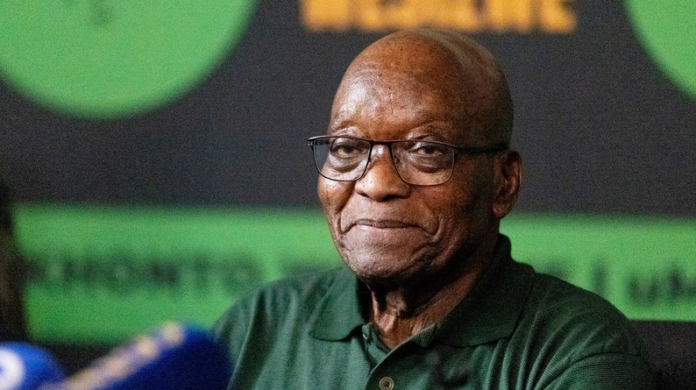The recent decision by the Electoral Court to uphold former President Jacob Zuma’s appeal against the Electoral Commission of South Africa (IEC) has sparked significant controversy and debate.
This ruling allows Zuma to contest the upcoming elections on May 29th, despite objections from the IEC due to his previous conviction and sentence for contempt of court.
The IEC initially upheld an objection to Zuma’s inclusion on the Umkhonto Wesizwe (MK) party’s candidates list, citing his previous conviction and sentence for contempt of court. According to the IEC, Zuma’s disqualification was based on the fact that he had been sentenced to 15 months in prison for contempt of court.
[Former President Jacob Zuma Expelled From Sanco In KwaZulu-Natal]
This decision was made in line with Section 47(1)(e) of the constitution, which states that certain convictions and offenses can preclude individuals from exercising their rights to participate in politics.
After a day of arguments, the Electoral Court made the order to grant Zuma’s appeal, setting aside the IEC’s decision and allowing Zuma to be included on the MK party’s candidates list. The court’s full judgment will be released electronically at a later date. It is important to note that no order was made regarding costs.
During the court proceedings, the IEC’s counsel argued that the manner in which Zuma was convicted for contempt of court was irrelevant. What mattered was that he had been found guilty. The counsel emphasized that Section 47(1)(e) of the constitution was in place to prevent individuals with certain convictions and offenses from becoming lawmakers.
On the other hand, counsel for Zuma’s MK party argued that the case was fundamentally about the denial of an individual’s right to participate in politics. They accused the IEC of attempting to disenfranchise millions of people who support the MK party and wish to choose their leader through democratic means.
The counsel argued that the IEC’s approach seemed to be focused on finding ways to prevent Zuma’s participation, rather than upholding citizens’ rights to make political choices.
In addition to the electoral court case, the African National Congress (ANC) has filed a trademark case against the MK party. The ANC aims to prevent the MK party from using the name and logo associated with the ruling party’s armed wing, Umkhonto Wesizwe. The judge presiding over the case has reserved judgment, and a decision is expected to be delivered in due course.
Critical arguments were presented during the case, including considerations of urgency, the ANC’s timeliness in bringing the case to court, and the jurisdiction of the matter. These factors will play a crucial role in determining the outcome of the trademark dispute between the ANC and the MK party.
Catch up with the latest news from The Times Post on WhatsApp by following our channel. Click here to join.















